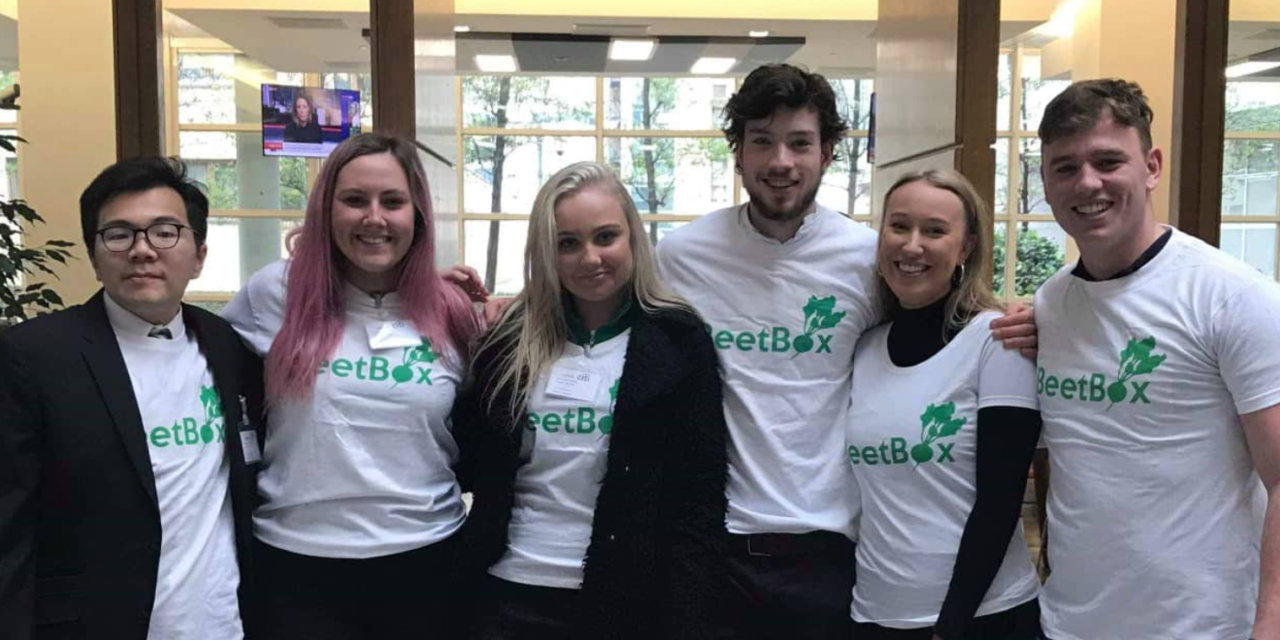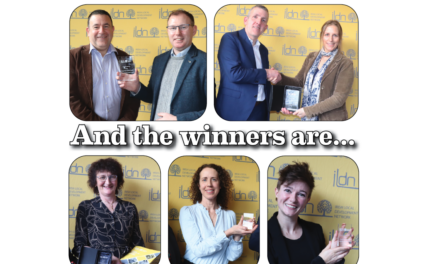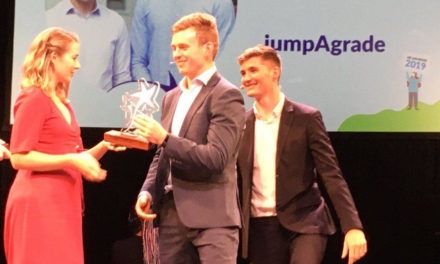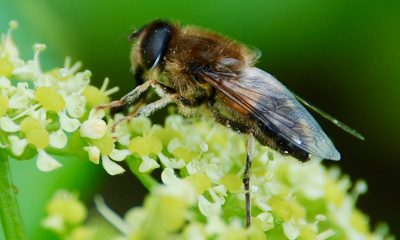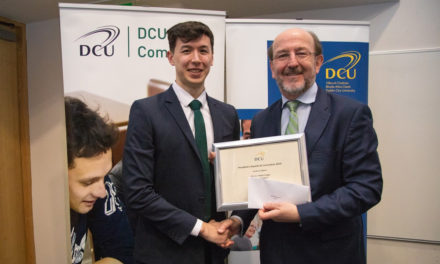Last week saw the Irish government release its first ever national social enterprise policy, which will give companies around the country additional supports as they launch and grow. It can only be good news for the next generation of social entrepreneurs, including the team behind Enactus’s BeetBox.
The stereotypical college student doesn’t care about much more than new friends, new freedoms, new parties and attending just enough lectures to make it through each year. Global non-profit Enactus seeks to subvert those expectations by empowering third-level students to become socially conscious leaders, and enacting positive social change through social entrepreneurship models along the way.
BeetBox is one of the projects in Enactus’s 2018–2019 cohort, driven by team members (and Trinity College Dublin students) Grace Deeny, Eve Maguire, Rudy O’Leary, Charlie Quirke, Holly Simpson and Dexter Yeung.
Here, Eve speaks to Kirsty Tobin – in an interview conducted in collaboration with Enactus – and gives us a detailed look at the work of BeetBox.
Can you tell us about your project?
BeetBox is a developmental programme that seeks to empower young people from disadvantaged areas of Dublin by equipping them with the tools and skills they need to lead a healthier life, while simultaneously expanding their knowledge of the importance of enterprise and business management.
The project is made up of two stages: education, and development of practical skills.
We wish to educate young people by providing workshops with guest speakers on a range of topics surrounding healthy eating and environmental sustainability.
We hope to facilitate the growing of fruit, vegetables and herbs to reduce the carbon footprint of the food we eat, and to empower and equip these young people with skills that they can apply in everyday life.
What social need does your project address?
According to the European Food Safety Authority [and detailed in a 2009 report], Irish people consume just 225g of fruit and vegetables on average per person per day. That’s less than half the national recommended amount of 500g.
What’s more shocking still is the substantial body of research highlighting the fact that health inequalities are attributable to differences in food and nutrient intakes across the socio-economic spectrum.
We at BeetBox are ashamed that one’s level of income can so starkly and negatively impact the basic right to a healthy life. BeetBox was set up to combat this inequality and provide disadvantaged young people with the tools they need to live a healthy and environmentally sustainable life, while also empowering social and professional development.
What first stirred your interest in this area?
I loved the idea of getting involved with something completely new that I had no previous knowledge of or dealings with. Going into my second year in college, I wanted to engage with something that would put me out of my comfort zone and force me to think outside the box. With BeetBox, this seemed possible.
Having no previous knowledge of gardening, and having little understanding of sustainable and eco-friendly living, I was forced to research and familiarise myself with what these things involve.
I also loved the idea of taking something as simple as gardening and giving it a new lease of life for young people who live in the city and may not (like me) have any experience with growing fruit and vegetables.
What prompted you or inspired you to get involved with Enactus?
As I began my second year as a law student in Trinity, I soon realised that, in my first year at college, I had been so concerned with trying to get used to being in a different city and studying something completely new that I was yet to properly get involved in college life.
My older sister had been involved with Enactus during her time in college, and watching her take part in pitching competitions and Enactus events – and just seeing how many friends she had made throughout her time with Enactus – really inspired me to get involved.
I went to a meeting during Freshers’ Week where I met a load of committee members who were so encouraging and it felt like a really exciting opportunity to take part in a really worthwhile society, develop interpersonal and important entrepreneurial skills and to make friends outside of my course and halls.
What have you learned about social enterprise and community-focused entrepreneurship since starting this project?
Thanks to Enactus and the opportunities I have been given as a result of my participation in BeetBox throughout the year, I have been able to develop skills and qualities that will prove invaluable in the future.
As a law student, I do not normally have many opportunities where I am forced to think entrepreneurially or with a business mindset and, as a result of my engagement with this project, I have had to think outside the box and take the initiative to try to make the project work even where it might seem impossible.
Thanks to Enactus and the other projects we have engaged with, I have grown to understand that often the most important first step with a successful social enterprise is to start locally and think logically. I have realised that making connections, asking for advice and relying on others to help when you may need it is key to making a social enterprise or any community-focused project work.
If you are willing to put yourself out there and ask for help or advice, people will respond!
Why do you think social enterprise matters?
To make the modern world work, we cannot disconnect business and enterprise from the real world and what it needs. I think social enterprise is incredibly important. It helps tackle social problems and support communities, while simultaneously generating revenue and encouraging entrepreneurial action.
When social enterprises thrive, society thrives too.
Do you think you’ll work to develop social enterprises after graduation, or even continue to grow your Enactus project?
Having spent the year working with this Enactus project, and seeing other projects around me grow and flourish, I have been inspired. I will continue to work with Enactus next year and hopefully engage further with the project by taking on a new intake of students to help bring forward the programme.
Although my chosen career path may not provide many opportunities to develop social enterprises per se in the future, I’m confident that the skills and qualities I have developed as a result of working with this project will continue to grow and be of use in my future path.
What advice would you give to students considering developing an Enactus project in the future?
Be confident and don’t be afraid to ask for help.
Enactus provides so many amazing opportunities to develop ideas, meet other like-minded students and engage in entrepreneurial action. It is definitely not easy to get a project up and running, but if you surround yourself with a committed, enthusiastic and hard-working team it will be an amazing experience. Give it your all!
Interested in reading more about the state of Ireland’s community development sector? Check out our latest issue.

